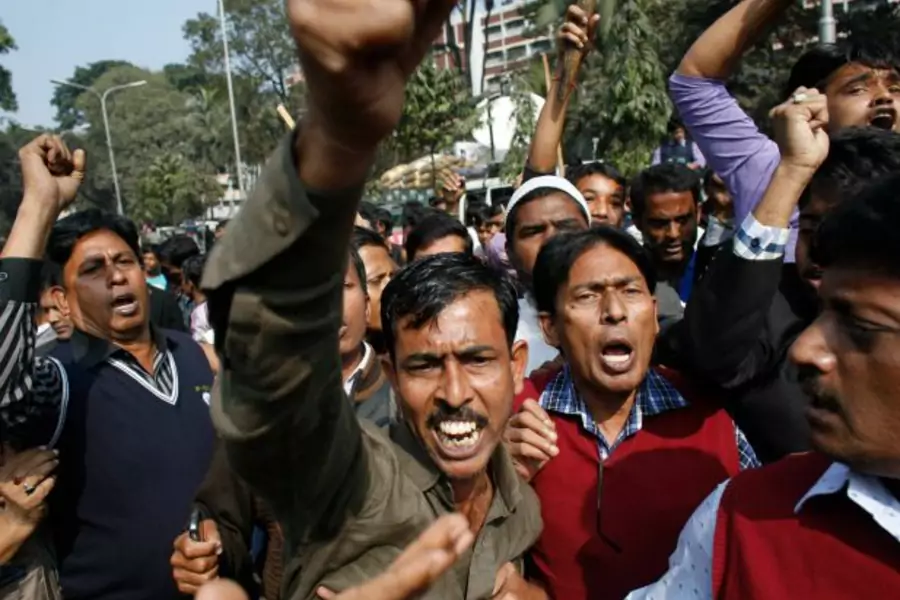More on:
In the late 2000s and early 2010s, Bangladesh, which for years had been an international symbol of poverty and catastrophe, seemed to have reached a kind of stability. The country’s economy, powered by its garment industry and low-end manufacturing, was posting some of the highest growth rates in Asia, and grabbing textile jobs from China, Cambodia, and other countries. The Bangladesh government announced that Bangladesh could become a middle-income country by 2021. And after a brief period of military rule in the mid-2000s, politics in Bangladesh, which has witnessed nineteen military coups in its short history, seemed to be edging toward stable democracy, with regular contested elections, a vibrant civil society, and a boisterous online media. “I call the country the next Asian tiger,” then-U.S. ambassador to Bangladesh Dan Mozena said in 2013---a comparison to stable Asian dynamos like Taiwan and Hong Kong.
But in the past two years, the country’s politics have regressed severely. Since the January 2014 elections, the most violent in Bangladesh’s history, both the ruling Awami League and the opposition Bangladesh National Party have continued to send activists, thugs, and the security forces into the streets for regular battles. The Awami League leadership, once viewed by liberal Bangladeshis as the best hope for sustained democracy, has tried to change Bangladeshi law to weaken independent institutions, and has jailed thousands of opposition activists.
And in this environment of repression and violence, Islamic militancy is rising. In the past year, four secular bloggers, who are often the leaders in promoting free expression in Bangladesh, have been murdered, allegedly by Islamic militants. Most recently, in early August, a group of men forced their way into the home of blogger Niladri Chaterjee and slit his throat. An autopsy report found that the killers also had hacked Chaterjee with fourteen blows to his head and upper torso. Other bloggers have been hacked to death with machetes in public.
For more on Bangladesh’s political regression, and how it fits into the global trend of democratic retreat, read my new piece for The National.
More on:
 Online Store
Online Store
